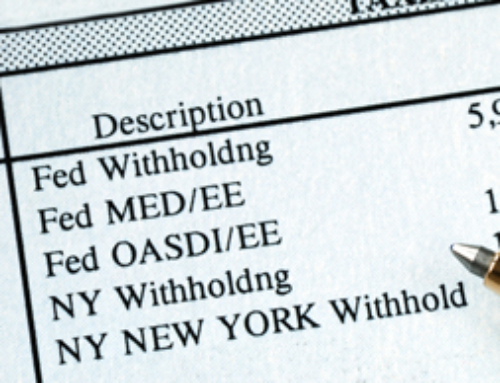 6 Tips for Pushing Your Adjusted Gross Income Below $250,000
6 Tips for Pushing Your Adjusted Gross Income Below $250,000
By Eva Rosenberg, EA
One of the big delays in passing the “extender bill” last fall was the conflict over extending the Bush tax cuts to people with incomes over $250,000. The debate isn’t over. In this year’s State of the Union, President Obama said, “If we truly care about our deficit, we simply cannot afford a permanent extension of the tax cuts for the wealthiest 2 percent of Americans. Before we take money away from our schools, or scholarships away from our students, we should ask millionaires to give up their tax break.”
News flash—folks with income of $250,000 and above are among the wealthiest 2 percent of Americans. Here are some ways to bring down your income in 2011.
Simple Tips for Reducing Your Adjusted Gross Income (AGI):
1. Contribute money to an IRA, SEP, or other retirement plan.
- If you have a job, you won’t qualify. Taxpayers with a job may contribute up to $16,500 to a 401(k). If you’re age 50 or over, you can increase that to $22,000. If your company has a Roth option—skip it. That won’t reduce your income.
- If you are self-employed, total SEP-IRA contributions are permitted up to $49,000, or up to 25 percent of the employee’s compensation, whichever is lower. This can be a combination of employer and employee contributions. This is a great plan for self-employed individuals. It allows you to control your contributions and defer funding them until October 15 of the following year.
2. Convince your employer to set up a health savings account (HSA). Or set one up yourself if you are self-employed. Any amount you contribute will not only reduce your AGI, but will also build up your savings in an IRA-like account.
3. Review your investments. Convert your interest-based investments to investments in your state’s tax-free municipal bonds or mutual funds investing in the bonds of your state. Your income will be tax-free for both the IRS and your state. Beware of the alternative minimum tax, though.
4. Do you have rental property(Schedule E) that shows a taxable profit? Interest rates are low these days. Your federal tax rate is at least 33 percent. That would reduce the net cost of a 6 percent mortgage to only 4 percent (or less, if you take into account the state tax savings).
- Refinance, increasing the mortgage enough to eliminate your taxable profit for the next few years.
- Invest the money into something solid, perhaps more rental property. It won’t take much to earn more than the 5 to 6 percent mortgage interest rate. Your profits will be eliminated by depreciation.
5. Operate a business at a loss for the first year or two. Be sure it turns profitable after the first two years. Chapter 2 of “Small Business Taxes Made Easy” will give you some strategies to avoid getting caught in the hobby loss trap.
6. If you are collecting Social Security, consider deferring it for now. Your benefits will increase if you reinstate the payments later. For now, you are paying taxes on 80 percent of your benefit. There’s an excellent explanation of this strategy at BottomLineSecrets.com.
You won’t be able to implement all of these strategies. Not everyone has that much influence over his or her employer. But sometimes strategies that help you will also help many others at your job. You might be able to make a difference.
Eva Rosenberg, EA, is the publisher of TaxMama.com®, where your tax questions are answered. She teaches tax professionals how to represent you when you have tax problems. She is the author of several books and e-books, including Small Business Taxes Made Easy. Follow her on Twitter: @TaxMama






